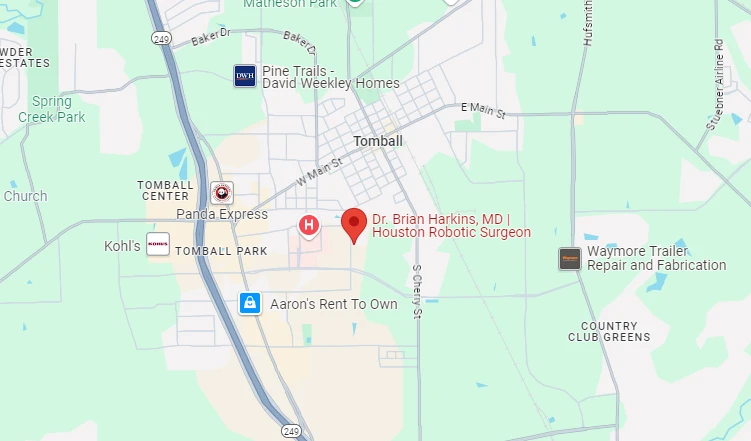
ERAS protocols significantly improve recovery in colorectal, gynecologic, and urologic surgeries. They promote faster healing by enhancing preoperative education, minimizing narcotic use, and encouraging early mobilization. These evidence-based practices have resulted in shorter hospital stays, reduced complication rates, and improved patient satisfaction. Patients experience less pain and are engaged throughout their recovery process. Understanding the core components and outcomes of ERAS can reveal the full impact of these protocols on surgical recovery.
Although surgical procedures can be daunting for patients, the implementation of an ERAS protocol offers a structured approach to improve recovery outcomes. ERAS is a multimodal perioperative care pathway aimed at optimizing patient recovery and minimizing complications following major surgeries. Key elements include thorough preoperative education, intraoperative care that maintains physiological stability, and postoperative strategies promoting early mobilization and effective pain management. Protocol development is based on scientific evidence and best practices, emphasizing the importance of patient engagement throughout the process. Care for patients undergoing major surgeries improves significantly without increasing re-hospitalization rates, showcasing the effectiveness of ERAS protocols. Successful implementation requires a multidisciplinary team, regular coordination, and continuous improvement to adapt these protocols to local healthcare environments, ultimately enhancing patient experiences and recovery times.
The implementation of an enhanced recovery pathway has demonstrated significant benefits in colorectal surgery, particularly in enhancing patient outcomes. This enhanced recovery program has led to an average reduction of 2.5 to 3 days in hospital stays, significantly lowering costs and improving healthcare efficiency. Complication rates have decreased by nearly 50%, with fewer incidences of Surgical Site Infections, Venous Thromboembolism, and Urinary Tract Infections. The use of these protocols has also improved pain management, reducing reliance on narcotic medications. Additionally, early postoperative mobility is strongly encouraged, which contributes to faster recovery and less discomfort. Overall, ERAS protocols support a comprehensive approach to recovery, aligning medical practices with the needs of patients for optimal outcomes.
As the enhanced recovery after surgery protocol gains traction in gynecologic surgery, it is increasingly recognized for its potential to enhance patient recovery and outcomes. These protocols prioritize minimally invasive techniques and standardized care, which significantly reduce postoperative pain. Dedicated patient education plays an essential role in preparing individuals for surgery and recovery, encouraging better compliance with the protocols. Evidence from a clinical trial of the effect of ERAS indicates a 32% reduction in postoperative complications and a 20% decrease in readmission rates, contributing to shorter hospital stays—averaging 1.6 days less. Additionally, patient satisfaction improves due to quicker recovery times and enhanced comfort. Overall, ERAS protocols streamline surgical processes and promote a more positive surgical experience for patients undergoing gynecologic procedures.
ERAS protocols have extended their benefits beyond gynecologic surgery, making considerable advancements in urologic procedures. The effectiveness of ERAS within an enhanced recovery pathway is evident through reduced hospital stays, with average lengths decreasing from 18 to 8 days. Enhanced patient outcomes include lower morbidity rates and complications, such as urinary tract infections dropping from 10% to 1%. A surgery found that surgical innovations within ERAS emphasize early mobilization and oral nutrition, facilitating faster recovery. Additionally, a multidisciplinary collaboration reinforces standardized pre- and post-surgical care, leading to decreased opioid use and increased patient satisfaction. Overall, the application of ERAS in urologic surgeries significantly improves recovery trajectories, underscoring its essential role in contemporary surgical practice.
Successfully implementing enhanced recovery protocols hinges on a multidisciplinary approach that promotes collaboration among surgeons, anesthetists, nurses, and other healthcare professionals. Effective communication is essential, as designated ERAS coordinators facilitate patient education and data collection, ensuring adherence to protocols. Addressing implementation challenges, such as resistance to change and inadequate resources, is critical for success. Strategic planning that adapts the ERAS model to local environments and encourages early wins can secure buy-in from clinicians and hospital leadership. Regular meetings among the ERAS team and frontline staff enhance compliance and allow for continuous improvement. Ultimately, cultivating a culture of multidisciplinary collaboration allows for thorough care, optimizing treatment and recovery outcomes for patients undergoing major surgeries.
The implementation of an ERAS protocol has been associated with notable economic and clinical benefits across various surgical specialties. Cost-effectiveness analysis illustrates significant savings, with colorectal surgeries reporting nearly $3,000 saved per patient and gynecologic procedures yielding a total of $1.4 million in savings over three years. Clinically, these protocols lead to reduced hospital stays—averaging 1.9 days—and a staggering 50% reduction in complications. Additionally, lower readmission rates enhance patient satisfaction, aligning with the goal of improving overall recovery experiences. While initial infrastructure costs may arise, the long-term economic and clinical outcomes of ERAS highlight its value in modern surgical practices, promoting both fiscal responsibility and superior patient care.
As the terrain of surgical recovery continues to evolve, the future of ERAS protocols promises significant advancements aimed at optimizing patient outcomes. The development of personalized protocols will utilize preoperative optimization customized to individual needs, supported by data analytics and machine learning to predict outcomes. Research published in Opin Clin Nutr Metab Care emphasizes how technology innovations, such as wearable sensors and telemedicine, will enhance real-time monitoring and facilitate personalized care during recovery. Additionally, expanding ERAS protocols to various surgical specialties will promote consistency in care. However, there is a need to assess whether certain aspects of ERAS protocols increase the risk of complications in specific patient populations. Challenges remain, necessitating ongoing education for healthcare professionals and continuous evaluation of ERAS effectiveness to guarantee its successful implementation across varied healthcare settings.
In summary, Enhanced Recovery After Surgery (ERAS) protocols represent a significant advancement in postoperative care across colorectal, gynecologic, and urologic surgeries. By focusing on evidence-based strategies that promote faster healing and reduced pain, ERAS enhances patient outcomes and satisfaction. The successful implementation of these protocols not only improves clinical results but also offers economic benefits. As a leader in patient-centered surgical care, Dr. Brian Harkins is committed to advancing ERAS protocols to optimize recovery and ensure the best possible outcomes for every patient.
An ERAS program (Enhanced Recovery After Surgery) is a structured, multidisciplinary approach designed to improve the postoperative recovery process for surgical patients. It focuses on reducing surgical stress, optimizing perioperative care in elective procedures, and promoting early mobilization to shorten the length of hospital stay. Studies, including randomized controlled trials in colorectal and meta-analysis of randomized controlled trials, have demonstrated that ERAS protocols lead to better surgical outcomes and improved quality of life.
A well-structured enhanced recovery pathway significantly reduces the length of hospital stay for patients undergoing major abdominal surgery. By implementing key elements of ERAS, such as multimodal pain management, early feeding, and prehabilitation prior to surgery, patients experience faster return of bowel function and fewer complications. Research, including a systematic review and meta-analysis, confirms that ERAS protocols enhance quality of care and recovery efficiency.
The elements of ERAS for elective colorectal surgery include preoperative education, carbohydrate loading hours before surgery, avoidance of routine bowel preparation, multimodal analgesia, and early mobilization. These strategies, recommended by the American Society for Enhanced Recovery and the European Society, have been validated through randomized clinical trials and controlled trials in colorectal surgery, showing improvements in surgical outcomes and reductions in mortality.
Minimally invasive surgery, such as laparoscopic or robotic-assisted techniques, aligns well with enhanced recovery after surgery programs by reducing surgical stress, lowering the risk of complications, and shortening the length of stay. Studies, including a meta-analysis of randomized clinical trials, have found that patients undergoing surgery with minimally invasive techniques experience a faster return of bowel function and improved postoperative recovery.
ERAS implementation is gaining traction in orthopedic surgery and cardiac surgery, where it focuses on reducing opioid use, optimizing fluid management, and encouraging early mobilization. Evidence from clinical trials and meta-analysis of randomized controlled trials suggests that ERAS protocols improve quality of care and enhance recovery in patients undergoing complex procedures. The tenets of ERAS, including prehabilitation and multimodal pain management, have shown promise in these fields.
In gynecologic oncology surgery, an enhanced recovery protocol minimizes complications by optimizing preoperative nutrition, reducing opioid dependency, and encouraging early ambulation. A randomized clinical trial found that ERAS patients in gynecologic oncology had shorter hospital stays and improved quality of life. The American Society and European Society recommend these approaches as part of the guidelines for perioperative care in gynecologic and other oncologic procedures.
An ERAS pathway in colonic surgery and gastrointestinal surgery focuses on reducing fasting times, improving postoperative pain management, and ensuring early feeding to enhance recovery. According to a meta-analysis of randomized studies, ERAS protocols improve surgical outcomes, shorten the hospital length of stay, and reduce the likelihood of complications. Implementing an ERAS strategy ensures a faster return to normal function for patients undergoing major abdominal surgery.
Early mobilization is a component of ERAS that plays a crucial role in reducing surgical stress and preventing complications like deep vein thrombosis and pneumonia. In elective surgery, getting patients out of bed on the day of surgery improves circulation and accelerates the postoperative recovery process. Studies, including randomized controlled trials, have demonstrated that early mobilization within an enhanced recovery after surgery pathway leads to improved patient outcomes.
The ERAS interactive audit system is a digital tool designed to track the progress of ERAS implementation in hospitals, ensuring adherence to practice guidelines for preoperative fasting, pain management, and early discharge. It allows healthcare providers to assess quality of care, measure length of stay, and identify areas for improvement. Data collected from randomized controlled trials in colorectal and elective colonic surgery support the importance of audit systems in optimizing enhanced recovery and perioperative protocols.
Implementing an enhanced recovery protocol benefits patients undergoing major abdominal surgery by reducing complications, minimizing opioid use, and promoting faster recovery. Through a multimodal approach, ERAS protocols improve perioperative care in elective procedures and enhance recovery in patients. According to a meta-analysis of randomized controlled trials, ERAS leads to a shorter hospital length of stay and improved surgical outcomes across multiple specialties, including elective abdominal surgery and undergoing gynecologic surgery.

Dr. Brian Harkins is a renowned surgeon specializing in advanced, minimally invasive, and robotic surgical techniques. With a dedication to innovation and personalized patient care, he has transformed countless lives by delivering exceptional outcomes.

I want a website like this, where do i start?